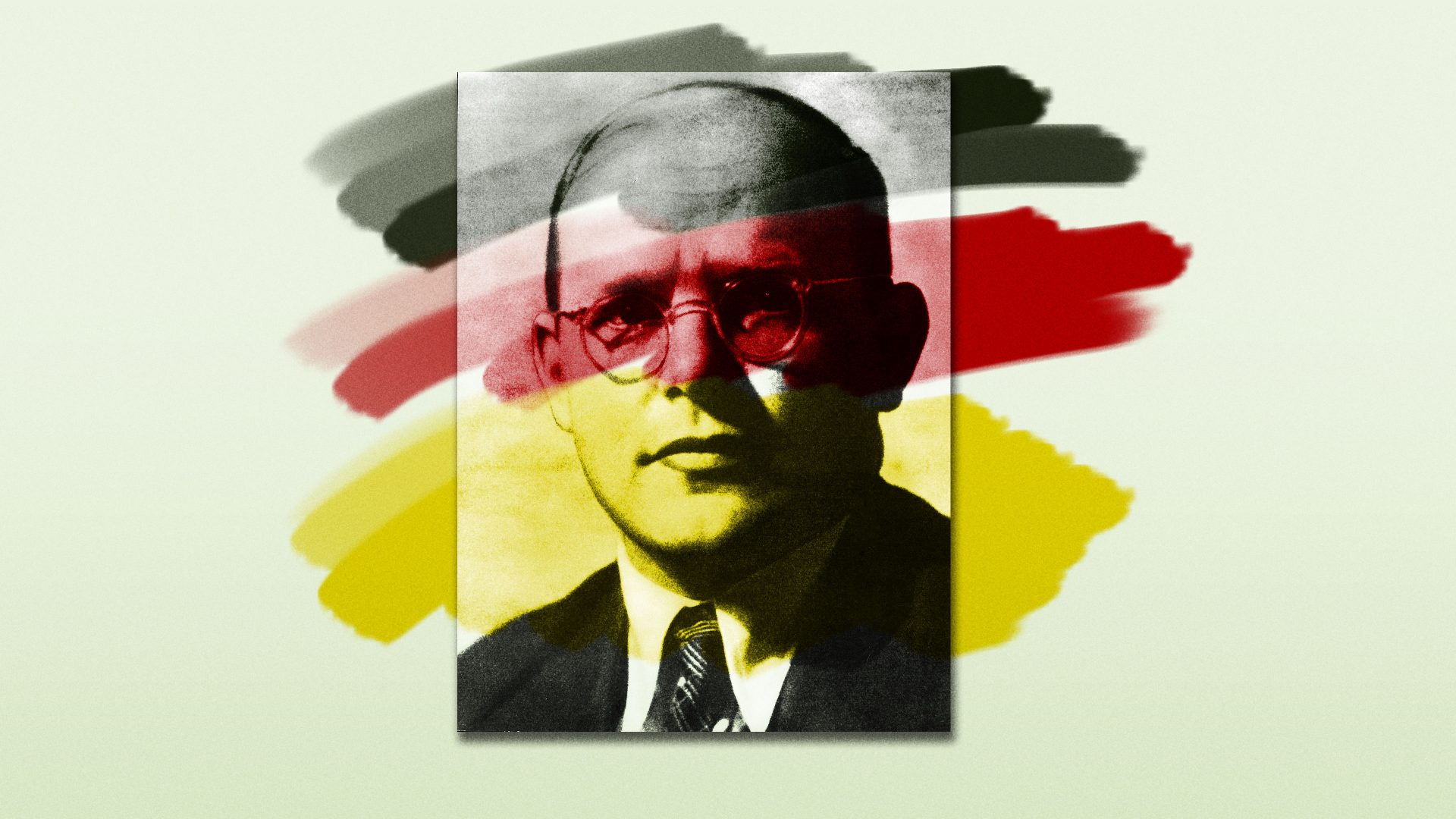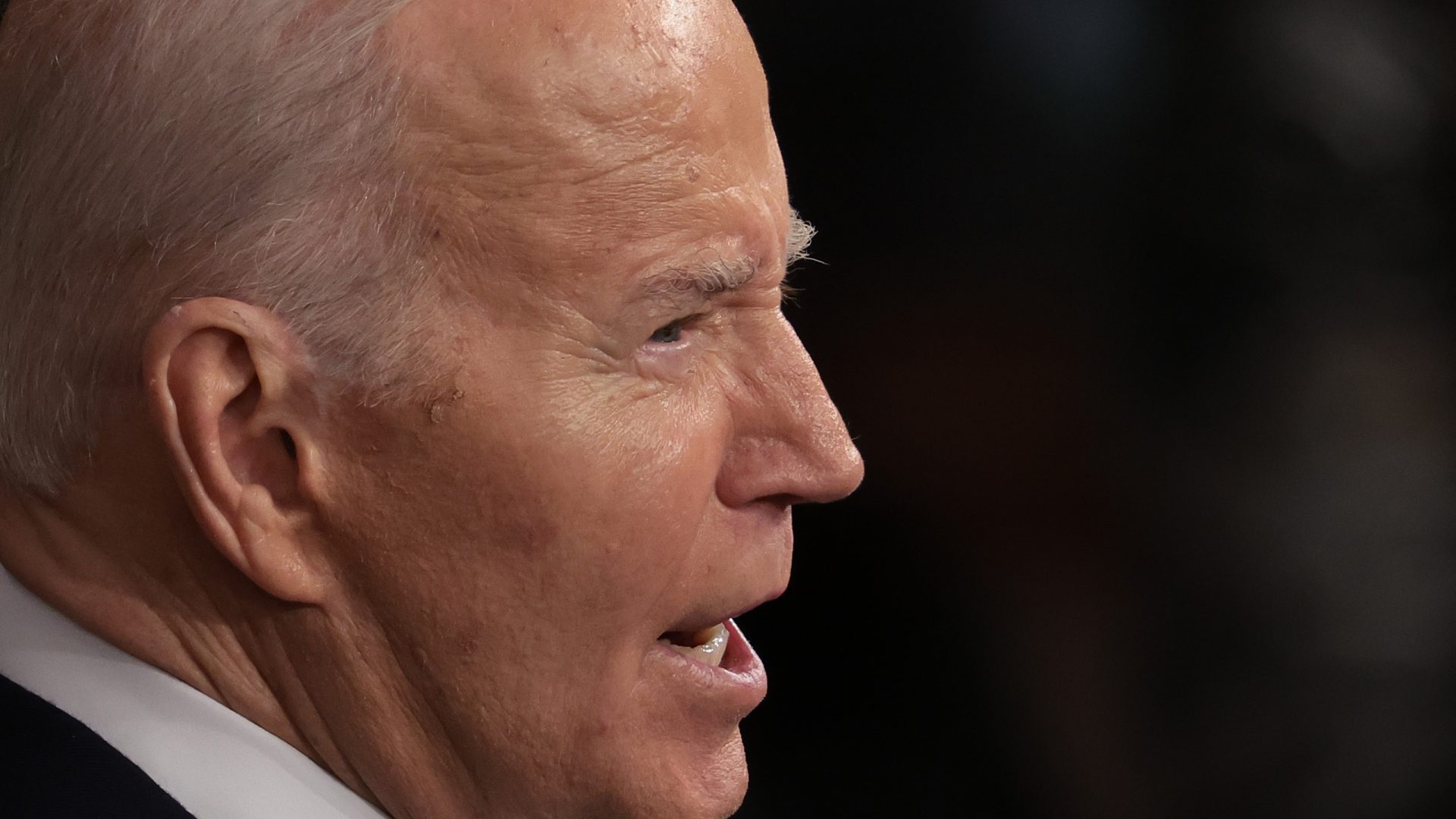Far right America has long appropriated the worst of German culture, flaunting Nazi emblems at white pride rallies – symbols that would be illegal to display in Germany. More recently, however, US nationalists have started distorting the best of “Made in Germany 1933-45” for their own ends: the legacy of Dietrich Bonhoeffer; Lutheran theologian, anti-Nazi dissident and Abwehr agent with strong ties to the UK. He is among the ten martyrs of the 20th century who have been honoured with a sculpture above the west door of Westminster Abbey.
Bonhoeffer has historically been a symbol for civil rights movements, who unlike his countrymen did not turn a blind eye to the disenfranchisement, oppression, and mass murder. Martin Luther King and Archbishop Desmond Tutu both referenced him frequently, yet in a bizarre twist, nationalist evangelicals now claim to follow the lead of the man who – on Hitler’s orders – was hanged on April 9 1945, aged 39.
Aware that the Nazis would kill him, Bonhoeffer asked a British fellow prisoner to send a message to his friend George Bell, then Bishop of Chichester: “Tell him that for me this is the end but also the beginning. With him, I believe in the principle of our Universal Christian brotherhood which rises above all national interests, and that our victory is certain.”
Yet today, US Christian nationalists have warped Bonhoeffer’s fight against anti-Jewish legislation in the 1930s into a parallel to their battles against abortion and gay rights in the 21st century. They’ve even co-opted his words – written from a concentration camp after the failed Stauffenberg plot to assassinate Hitler – as justification for the Capitol riots of January 6 2021: “Daring to do what is right, not what fancy may tell you, valiantly grasping occasions, not cravenly doubting. Freedom comes only through deeds, not through thoughts taking wing.”
This evangelical hype is largely thanks to a controversial but bestselling biography by Eric Metaxas, a Yale alumnus who paints Bonhoeffer as a fundamentalist evangelical. Metaxas is an ultra-conservative author and radio host who supported Trump’s 2016 campaign and was an early advocate of the “stolen election” myth in 2020. He even posts pictures of a gun on top of a Bible. You get the picture.
The misuse of Bonhoeffer’s name and legacy has been simmering for a while, but a new film has taken things to another level. Based on Metaxas’ book, it was initially titled God’s Spy and independently produced. But then Angel Studios, a Utah-based, self-styled nemesis to Hollywood that crowdsources funding from evangelical Christians, got involved. According to the actors and the director, Angel Studios didn’t just buy the project – they hijacked it.
This week, the film hits US cinemas, and the marketing promises to reveal “the untold, true story.” Spoiler alert: it doesn’t. It’s already way off the mark with its new title, Bonhoeffer: Pastor. Spy. Assassin.
Bonhoeffer, a pacifist, was many things, but certainly not a killer. Still, the poster shows him holding a gun, with Hitler lurking in the background. And the trailer has him shouting: “My country was invaded from within!” – a sentiment that likely resonates with an alt-right audience convinced that the Stars and Stripes is under siege from a “woke” Deep State.
This is where the Bonhoeffer family has finally had enough. Eighty-six direct descendants of Bonhoeffer’s seven siblings signed an open letter expressing their “horror” at the “tasteless trivialisation of his legacy” which is “misused by right wing extremists, xenophobes, and religious agitators”.
Bonhoeffer would have denounced these attitudes “strongly and loudly,” they wrote, calling the people behind the distortion either “misinformed or malicious”.
It added that Dietrich, his brother Klaus and his brothers-in-law Hans von Dohnanyi and Rüdiger Schleicher, who were all executed, “were driven by the search for truth, honesty, humanity, and the struggle for freedom, the rule of law, and democracy. They repudiated religious zealotry, nationalism, militarism, and blind obedience.”
Bonhoeffer’s beliefs couldn’t be further from the evangelical playbook. He was a liberal intellectual, cosmopolitan, open-minded, ecumenical, science-oriented – a man who fought against exclusion and for those who couldn’t fight for themselves.
Just last week, even the German cast of the movie – many of them well-known actors back home – publicly distanced themselves from the film’s marketing (not the film itself, which they say delivers a clearly anti-totalitarian message). Whether the film will make it to German cinemas remains to be seen. But at least this false evangelical narrative is finally publicly challenged.




